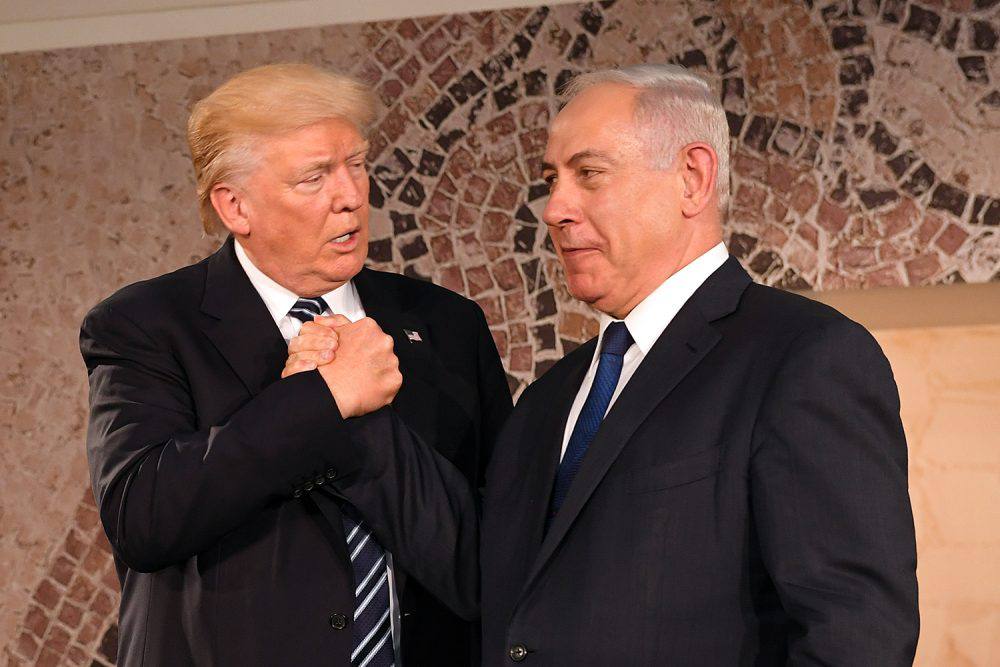Bibi, Trump’s First Guest
Bibi, Trump’s First Guest
What Should Trump and Bibi Do About the Palestinians?
When it comes to Israelis and Palestinians, the future of projects and economic growth pales in comparison to the political and military aspects of the conflict. Donald Trump said that they, Egypt and Jordan, should return our favor. Trump then asked Egypt and Jordan to open their doors to over two million Gaza survivors.
Is this a real estate deal to evacuate Gaza, rebuild it, and sell to the highest bidder, or a new expansion of Palestinian refugees in the Middle East? The American president does not clarify any of this.
Trump speaks vaguely of a temporary or long-term solution. In one of the most serious projects for Gaza reported last year in an Italian newspaper, it was mentioned that reconstruction would not be completed before 2050.
According to reports from the World Bank and the United Nations, rebuilding just four major cities in Gaza will cost 33 billion dollars. This amount is separate from the costs of homes, infrastructure, and economic activities. But as always, when it comes to Israelis and Palestinians, the future of projects and economic growth pales in comparison to the political and military aspects of the conflict.
What matters now is the ceasefire. Will there be a second phase? How long will it last, and what will happen in the future? Peace or war again? In the meantime, what is decisive now is Benjamin Netanyahu’s trip to Washington. What will he tell Donald Trump, and especially, what will Trump tell Netanyahu?
It seems that the first phase of the ceasefire is going well. By the end of it, 33 hostages will be handed over by Hamas, eight of whom have died. The designated 42 days will end in early March.
The common idea among all stakeholders—Qatar, Egypt, the Saudis, the Emirates, Europeans, Americans, at least the Biden administration—was that the second phase should follow, and at the end of it, peace and negotiations about the Palestinian state should begin.
Without assurance of conditions, Hamas will not release the last forty Israeli hostages held for the second phase—young men who are soldiers for the Palestinians.
In Israel, after three years of mandatory military service, individuals remain in the military reserve until the age of 50, depending on their duties.
It seems that for Benjamin Netanyahu, the fate of the hostages in Hamas’s hands is not of great importance. What matters is staying in power. In Israel, as long as the war continues, the commander-in-chief does not change.
More importantly, appeasing coalition allies, settlers, and nationalist-religious extremists who want the conflict to continue until terrorists and possibly even civilians are eradicated from Gaza. The latest images from the release of hostages, surrounded by hundreds of armed Palestinians, show that eradication has not happened in the 15-month war and will never happen.
This is the message that Netanyahu, the first foreign leader accepted by the American president, conveyed to Trump: the war must continue. But aligning with Israeli expectations means disappointing Arab expectations and jeopardizing important deals with Gulf countries. In these first two weeks of power, there is ample evidence that for Donald Trump, diplomacy and geopolitics are nothing but economic deals.
When Trump asks Jordan and Egypt to accept two million Palestinian refugees and says that America has done a lot for them, he is not wrong. After Israel, these two Arab countries benefit the most from American economic and military aid.
But this is not just a political investment; for the United States, it is also an economic investment. Without that aid, Egypt and Jordan might lean towards China or become destabilized by Islamic terrorism, which could endanger American interests. Yet for Trump, even the labyrinths of the Middle East are largely a transaction between debtors and creditors.
Investment in real estate in Gaza is not possible without the funds from the Emirates and especially Saudi Arabia. The first response to Trump came from the Arabs the day before in Cairo: Gaza will not be emptied of its inhabitants under any circumstances or justification.
Egypt, Jordan, the Saudis, Qatar, the Emirates, Palestinian officials in Ramallah, and the Arab League expect to cooperate with Trump to achieve peace in the Middle East based on a two-state solution. This is exactly contrary to what Netanyahu requests.
The demand for the migration of people, many of whom have lived in a diaspora for about eighty years, refers to the dispersion or forced migration of ethnic, religious, or racial groups outside their homeland, is not only inhumane but also disregards the history of this region.
Although the Palestinians are not migrants, it is hard to find them on ships sailing in the Mediterranean Sea, but the violence of the Israelis and the mistakes of their leaders have scattered them across the Middle East.
Six million refugees, some of whom actually live far from Palestine, while others are officially refugees under a complex bureaucratic system. In Jordan, both groups make up more than 70% of the population. Queen Rania is Palestinian, born in exile in Kuwait, where her family fled from Tulkarm in the West Bank. Her son Hussein, the crown prince, will one day be a Jordanian-Palestinian king. About 500,000 Palestinians live in Lebanon in conditions that European Jews faced for centuries; they are barred from many jobs and cannot own land or real estate.
This nation, which is in a kind of crisis, could not help but contribute to the chronic instability of the Middle East. Black September in Jordan in 1970, the Lebanese civil war from 1975 to 1990. If the countries present in Cairo said no to Trump, it’s because they know the Israelis will never return them to their lands, as only a Palestinian state can peacefully resolve this century-old conflict, and more importantly, because they are aware of the explosive power of a desperate nation.

